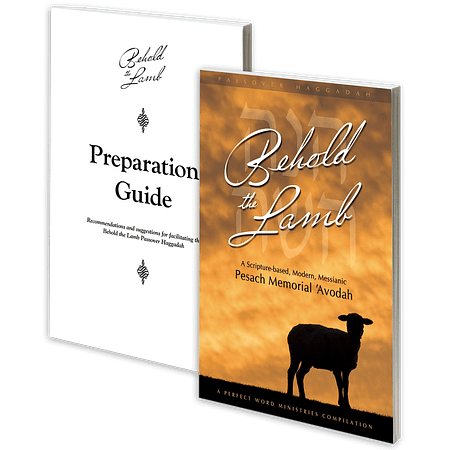Seeing the Invisible One
A Special Passover Message
Every year the Passover season brings with it a sense of renewal and hope. It is our annual reminder of the power and sovereignty of God, His unending zeal for His people, and His uncompromising willingness and ability to save. Passover-time is known as the Season of Freedom because it commemorates an event in Israel’s ancient history which God continues to repeat spiritually for all followers of His Son. But even with the freedom that we now have through our Savior Yeshua, many believers in Messiah still struggle to walk daily in that freedom. It is, in fact, Mosheh (Moses)—Passover’s first hero—who shows us how to be truly free.
By faith, מֹשֶׁה, Mosheh, having become great, refused to be called a son of the daughter of פַּרְעֹה, Par’oh [Pharaoh], having chosen rather to be afflicted along with the people of God, than to have sin’s pleasure for a season, and having counted the disgrace of the Messiah greater wealth than the treasures of מִצְרָיִם, Mitz’rayim [Egypt]; for he looked to the payment of the reward. By faith he left מִצְרָיִם, Mitz’rayim behind, not having been afraid of the rage of the king. For, as seeing the Invisible One—he endured. By faith he kept the פֵּסַח, Pesach [Passover] and the sprinkling of the blood, so that He who was destroying the first-born might not touch them. (עִבְרִים Iv’riym [Hebrews] 11:23-28, mjlt)
Mosheh, the deliverer of Israel, underwent an unprecedented transformation over the course of his story. Beginning at the height of his fame in Egypt, Mosheh did what few of us will ever have the courage to do, yet all of us must do in order to truly follow the Messiah: he left his old self behind. He threw off the identity and lifestyle he had had since birth, and he instead chose not only his new identity with his own Israelite people, but he chose their affliction. Rather than reveling in “sin’s pleasure for a season,” Mosheh embarked on an exodus into his true sonship, taking the more difficult and painful path… on purpose.
Upon that altar, Mosheh laid down all the comforts and extravagances of Egypt, and picked up in their place “the disgrace of the Messiah.” Though the harsh reality of Mosheh’s new circumstances was palpable, he nevertheless was able to peer into the distant future to see by faith the One like him (see De. 18:15) who would one day come again to Israel. And yet, seeing the suffering and slaughter of the Messiah—the transcendent Passover Lamb—Mosheh nevertheless chose to share in Yeshua’s disgrace, considering it “greater wealth than the treasures of מִצְרָיִם, Mitz’rayim; for he looked to the payment of the reward.”
Though it would have been natural for Mosheh to be somewhat apprehensive about leaving behind the only home he had ever known, he nevertheless pressed on, “not having been afraid of the rage of the king.” A former way of life is a jealous pursuer, chasing after its loss with mad fury. But despite making himself the target of Pharaoh, Mosheh did not fear what was stalking him. Instead, by faith, he set his sights on the unveiled promises of a hidden future, “For, as seeing the Invisible One—he endured.”
Finally, having successfully escaped from Egypt and encountered God in the desert, Mosheh then did the unthinkable: he returned to the lair of his former self in order to free his people. And this is how it came to be that “by faith he kept the פֵּסַח, Pesach [Passover] and the sprinkling of the blood, so that He who was destroying the first-born might not touch them.” Having never once seen God, yet witnessing the effects of His terrifying power, Israel finally obtained their freedom. By marking themselves with the blood of the lamb, God’s people were passed over by His death plague… delivered and redeemed.
As disciples of Messiah, our struggle to live in the truth of our freedom stems from our choices and perspectives. Like Mosheh, we must refuse to live in our old identity, and instead choose the hard yet righteous path. Like Mosheh, we can face even the most terrifying of circumstances when we look forward with faith to the reward we have been promised. It is time to open our eyes to the reality that only when we believe in things we cannot see will we ever truly find freedom in Messiah… for, as seeing the Invisible One—we will endure.
What do you think? Let us know in the comments below!





Beautiful teaching article!!
Very well said! Yeshua, our Glory and the Lifter of our head; our very great Reward.
Lovely encouragement today. Meg
Hallelujah! What a Saviour!
I agree 100% with what you testified! Why you ask! Because it is SO TRUE!
He is Risen. He is Risen, INDEED!
Very timely and encouraging. Also emphasising the choices that we must make. To choose the correct perspective and a tions when it’s the last thing I am seeing or feeling.
I have missed seeing these! Blessings this passover ❤
Thank you
Excellent teaching.